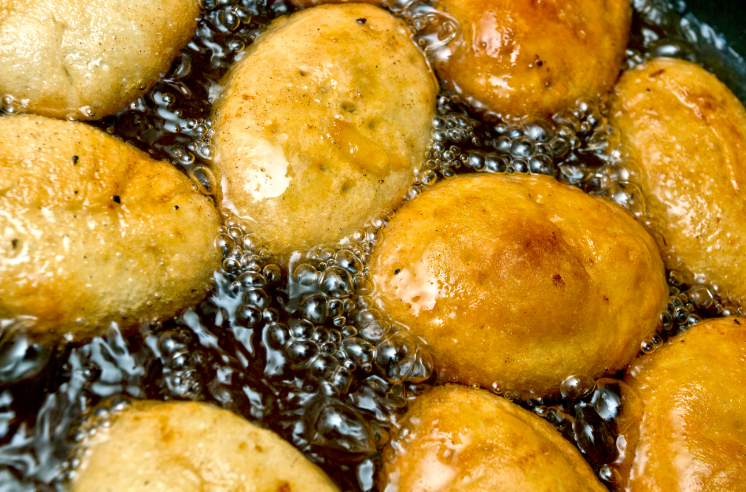The first Thursday night of Rajab, which is the beginning of the blessed three months (Rajab, Shaban, and Ramadan) in the lunar calendar, is different from other nights in Konya. Preparations for this night, which is called the Night of Hopes, start one week before. The shops are decorated with colorful lanterns. In the morning, adults buy some chocolate, sweets, and nuts as a treat for the children. The bags of the children, with which they will collect these treats are already ready.
Ropes are stretched on the shining streets of the city that night. Children take their lanterns, and decorate these ropes with them. Candles are lit inside paper lanterns with names such as “drum”, “watermelon”, “tailed”, “rooster” and “rabbit.” This tradition is called fener alayı (torchlight procession). Some children play games by snatching the lanterns of the other neighborhoods. In the middle of the neighborhood, tires are burned and people jump over the fire.
After this night of festive mood, the next day starts early. Excitement surrounds the children and a sweet rush surrounds the elders. On this day, which is also called “the first Prayer”, women prepare dough fries called pishi and halva made with molasses to serve to the guests. On that day, the doors are open. When the doors of certain individuals are shut, they are responded to by knocking on them using a wooden handle. The children go door to door and start collecting the treats. This traditional ceremony, which can only be found in Konya, is called Shiwlilik. As the children stroll around the locality, they sing:
Flared, flared puffed,
Early riser cooked,
Two buns and a patty,
We need a prayer rug: Shiwlilik!
The owners of the houses give the children some gifts like nuts, chocolate, sweets, wafers, raisins, and silverberries. Families also visit the cemetery, neighbors, relatives and bless each other’s Prayers. The guests are given some Shiwlilik treats like fried dough, halva, or nuts. Prayers and mawlid (a eulogy recited to celebrate the birth of the Messenger of God) are recited in mosques.
The origin of the tradition Shiwlilik goes back to the old years. A few narratives are quoted on how it developed. According to the most well-known quote, a friend of God named Abu Bakr Muhammad Shibli dreams of our Prophet, peace and blessings be upon him, and knocks on the doors saying “Shiwlilik!” by heralding about it. This tradition was formed when people on the doors who heard the good news about Shiwlilik gave him gifts. Another quote according to the poet Ismail Detseli from Konya, who stated that he learned the history of Shiwlilik from his mother, titled Shiwlilik: The History of Pishi, is as follows:
Our ancestors settled in Konya before 1071. The husband of one of our mothers, who live a tent life, wants a greasy dough meal. For easy transport, there is only yufka bread with them at that time. For the difference, the woman decides to make fried dough, which we call pishi today. However, there is no liquid oil like today. They will make the fried doughs with self-made butter. Early in the morning, she lights up a fire in front of the tent and melts a lot of butter. She throws the rolled balls in the melted butter. Sounds of the dough like “shiw shiw” or “jiwir jiwir” and the smell of hot oil spread around. Everyone, young or elderly people visit the place where the smell and the sounds come from. The name “Shiwlilik” was given to it due to its characteristic sounds, and this custom has endured up to the present time.
Starting from the reign of Ottoman Sultan Selim II, the Turkish Islamic practice has aimed to enhance social unity and bring joy to children, and it is believed to have persisted to this day.




